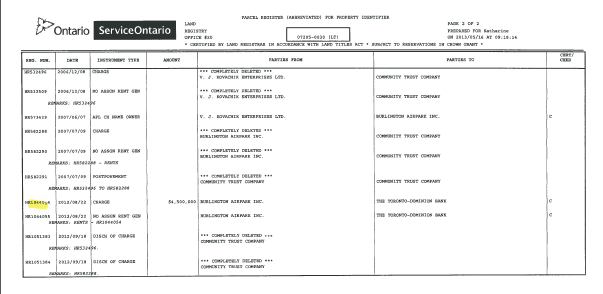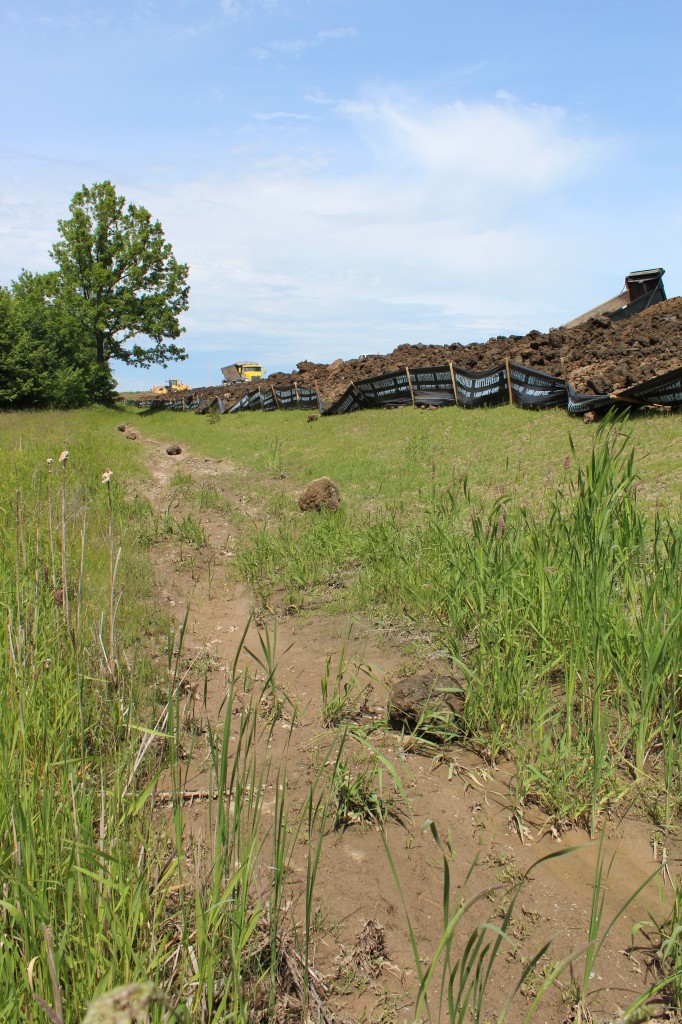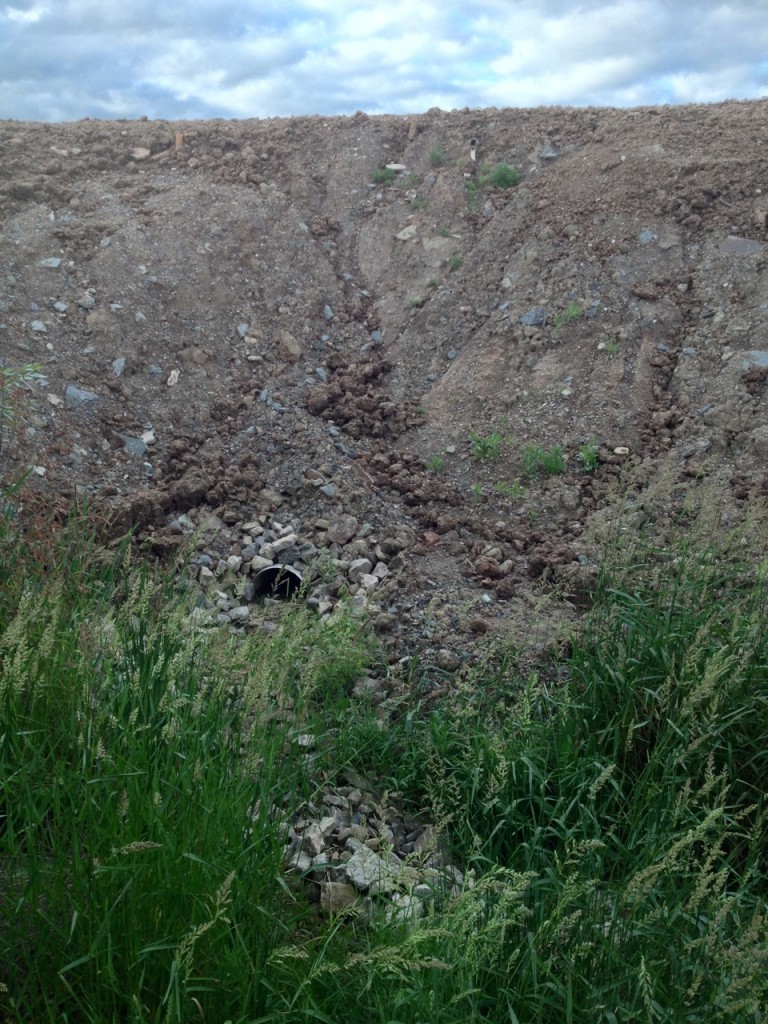My belief is that proper development, done sustainably, will make you money. There might be a short-term outlay, but in the long-term you are going to make money off of it – at the very least in energy savings.

While the type is small it is clear that the TD Bank put a $4.5 million mortgage on the Air Park property. There had to be a business case for that loan. No one at either the Regional level or the municipal level has seen that business case.
Fast forward now to the situation in north Burlington where the TD Bank put a $4.5 million mortgage on the Burlington Executive Air Park property.

The owner of the property to the left of the little gulley argues that the owner of the property on which the landfill is being dumped cannot inflict that kind of environmental damage.
The Air Park argues that they are a federally regulated operation and are not subject to municipal or Regional by-laws or rules.
Given the evidence of the damage done to the environment overall, the absolute lack of any social corporate responsibility and the unwillingness to involve either the Conservation Authority, the Regional government or the city of Burlington in their plans for developing the Air Park, one wonders if the TD Bank is living up to their claim to be an organization that takes environmental issues seriously?

The owners of the property onto which the water from the culvert shown flows want to know what is in the landfill that has been dumped next door to their property. Their fear is that the soil has not been adequately tested, that no one is able to say where the soil comes from and that it is not contaminated and has the very real potential to pollute their water supply. The owners of the land the water runs onto are not able to use those fields – there is no natural drainage because the water coming from the culvert is not part of the natural system in place.















When taking a charge on commercial property, banks run the risk of having to manage an environmental problem if, in fact, the borrower defaults. It is therefore in the lender’s interest to understand the known condition of the site, AND to know what the “go forward” risk may be.
Further complicating this matter is the federal vs. provincial jurisdiction issue. Municipalities (even if they choose to get involved in a “private” dispute between land owners) are unlikely to have much clout with Environment Canada, and if the Ontario Ministry of the Environment has no jurisdiction, they’re very unlikely to be interested unless there is substantive damage to the natural environment that can be proven to be caused by activity at the air park. It’s anyone’s guess how the MOE would interpret the terms “substantive” and “proof”. Suffice it to say that any aggrieved landowner will have to incur the cost to of furnishing the evidence of actionable environmental damage.
Which means that if any action is brought against the air park through the far more likely process of civil litigation, the bank could potentially get dragged in.
Banks don’t like this.
It is therefore incumbent on the lender to have undertaken thorough due diligence BEFORE placing their charge on title. Whether TD performed an adequate assessment of environmental risk in this case remains to be seen.
Ms Whistler obviously didn’t do any environmental assessment on the Burlington AirPark. This is probably the most anti environment project that has ever taken place on the newly created Green Belt.
Smooth talking will outwit the environment any day. Perhaps the TD bank should have a look at how much it will cost to restore the damage done. They may have trouble with loan repayments.
Talking about the environment does not make one an environmentalist no more than standing in a garage makes one a car.